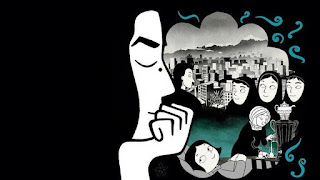Anna-Maria Lenngren
(1754-1817)
Anna-Maria Lenngren, a woman who did a lot for equal rights for men and women. She has meant a lot to the equal rights for men and women and wrote about the roles that, at that time, came with the two genders. The man and the woman. In her poem “The-Conseillen” (The Tea Meeting) she makes fun of the gender roles and talks about how the women in her time are being treated and what their obligations are. She has made other poems that also mentions these problems, which will be explained later on in the text.
She was one of Sweden’s first feminists and was active during the Enlightenment period in the 1700s. She was given a classical schooling - which was quite uncommon for a girl at that time - by her father Magnus Brynolf Malmstedt, who was an associate professor of Latin at Uppsala university.
At an early age, she began a very successful writing and translating career and was acclaimed by King Gustav III for her adaptations of comic operas into Swedish. In 1775 she got her break-through with the poem “The-Conseillen” and the next year she was admitted membership of the musical and literary society Utile Dulci and was from then on considered a member of Stockholm’s Cultural Elite. From 1778, she began writing for the newspaper Stockholms-Posten.
After marrying Carl Peter Lenngren 1780 she started specialising in writing satire and anecdotic and quick-witted poems. Lenngren didn’t really like the popular idolizing genres of the 18th century and chose to paint everyday life with a unique sense of presence. In 1793, a year after King Gustav III had been assassinated, she quickly filled the gaps after the deceased, ill-fallen or exiled poets Lidner, Kellgren, Bellman and Thorild and became the leading pen of Stockholms-Posten until the turn of the century. In 1799, the Swedish Academy (which nowadays gives away the Nobel Prize of Literature) decided to give her a yearly pension - the first Swedish writer ever to be given such a privilege.
Anna Maria Lenngren is considered to be a literary bridge between two Golden Ages in Swedish literature: the Gustavian period and Romanticism, which is said to have had its breakthrough in Sweden in 1809. Rather than choosing the approaching dizziness of Romanticism she chose the bravery of the Enlightenment period, she wrote in the self-conscious programmatic poem “Invocation” from 1809. There is liberty, equality and brotherhood in her ideal society as can be seen in “Pojkarne” (The Boys) from 1797. She mercilessly makes fun of the nobility and bourgeois ladies bullying their maids. In “Rosalie” from 1794, she wrote about the male double standards.
In 1819, two years after her death, her husband published her poems with the diminishing title “Skaldeförsök” (Poetic Attempts), which even had the men of the Swedish Academy reacting. The Academy had a memorial coin made, the Latin inscription of which had the meaning: “The less she sought the honour, the more she won it.”
Lenngren was deeply alien to the young romantic writers, who she attacked in the poem ”Kråkan” or “The Crow” (1814). In the first book of Swedish history of literature, Atterbom’s ”Svenska siare och skalder” (1845), her literary importance is toned down; her popularity in castles and cottage is rationalized with the Swedish people’s simple taste (!)
In particular, her revealing eye for the inequality between the genders, which is best seen in the poem ”Några ord till min kära dotter – ifall jag hade någon” (1798) (Some word to my dear daughter, if I had any) stood in contrast to the romantic approach of love. With Anna Maria Lenngren, female irony had its style and place in Swedish literature.
Instead of romanticizing the world and the problems many people had, she wrote openly and honestly about many things. Her poems has certainly helped us understand how things were when she was alive and how something that can seem very simple, to address a problem, can mean so much for so many people.



Kommentarer
Skicka en kommentar